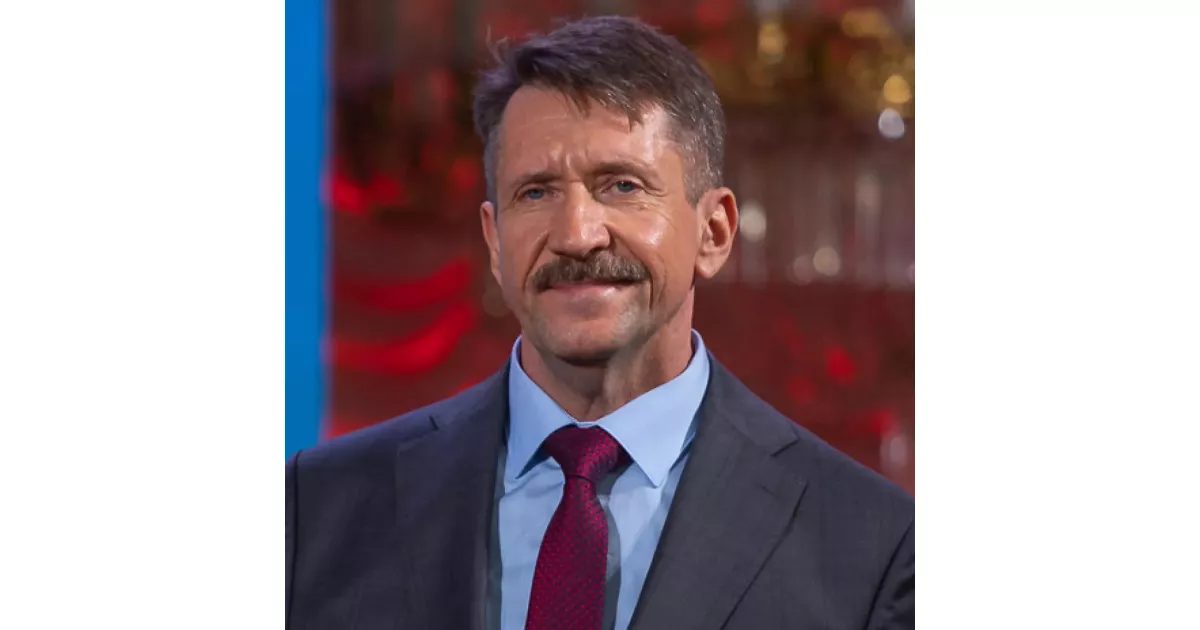Viktor Anatolyevich Bout, a Russian arms dealer and former Soviet military translator, gained notoriety for his global arms smuggling operations. Throughout the 1990s and early 2000s, he utilized multiple companies to traffic weapons from Eastern Europe to Africa and the Middle East. His disregard for international embargoes and vast network of clients earned him the monikers "Merchant of Death" and "Sanctions Buster," particularly after a 2003 UN report highlighted the extent of his activities. Bout's operations fueled conflicts and instability in several regions.
January 1967: Birth of Viktor Bout
Viktor Anatolyevich Bout was born in January 1967, with official documents indicating his birthplace as Dushanbe, Tajik SSR, Soviet Union, now the capital of Tajikistan. This marks the beginning of the life of a man who would later become known as a notorious arms dealer.
January 1967: Birth and Early Life of Viktor Bout
Viktor Bout was born in January 1967 in Dushanbe, Tajik SSR, Soviet Union. His early life is marked by uncertainty, with varying accounts of his exact birth date and place, but generally accepted as being born in the capital of modern-day Tajikistan.
1970: Wife's Birth
Viktor Bout's wife, Alla Vladimirovna Bout (née Protasova), was born in Leningrad in 1970.
1991: Viktor Bout's Military Discharge and Business Venture
In 1991, after the dissolution of the Soviet Union, Viktor Bout was discharged from the Soviet Army, reportedly with the rank of lieutenant colonel. He then started an air freight business, marking the beginning of his controversial career in arms dealing.
1991: Bout Becomes Russian Citizen
In 1991, following the dissolution of the Soviet Union, Viktor Bout became a Russian citizen. This marked a significant change in his national identity and legal status, as he was previously considered a Tajik national.
1992: Marriage
Viktor Bout married Alla Vladimirovna Bout in 1992.
1993: Collaboration with Richard Chichakli Begins
In 1993, Viktor Bout began collaborating with Richard Chichakli, who later became known as his financial manager. This partnership facilitated Bout's use of the UAE's free trade zone for his business operations.
1993: Bout's Involvement in UNITA Arms Smuggling
In 1993, Viktor Bout was suspected of transporting weapons to UNITA in Angola, violating a UN Security Council embargo. This involvement with another suspected arms dealer, Imad Kebir, underscored his role in international arms smuggling networks.
1994: Bout's Operations in Afghanistan Begin
In 1994, Viktor Bout began making shipments for the pre-Taliban government in Afghanistan, later known as the Northern Alliance. His activities in the region were reportedly related to arms transport, despite his denial of dealing with extremist groups.
1994: Daughter's Birth
Viktor Bout's daughter was born in the UAE in 1994.
1995: Bout's Business Operations in UAE
By 1995, Viktor Bout was utilizing the Sharjah International Airport's free-trade zone in the UAE for his operations, aided by Richard Chichakli. This strategic move supported his expanding international arms dealings.
1995: Founding of Air Cess by Viktor Bout
In 1995, Viktor Bout founded Air Cess, an air freight business based in Liberia. This venture became known for its role in transporting goods, including allegations of arms smuggling, during a time when Bout earned the nickname 'Sanctions Buster.'
1995: Involvement in 1995 Airstan Incident
In 1995, Viktor Bout was involved in negotiations to free Russian hostages during the 1995 Airstan incident. This event highlighted his connections and influence in global affairs.
1996: Bout's Arms Smuggling Activities
Between 1996 and 1998, Viktor Bout was implicated in arms smuggling operations involving Bulgarian weapons and forged end-user certificates. These activities were linked to conflicts in Africa, showcasing his growing influence in illegal arms trade.
1998: Continued Arms Trafficking Allegations
In 1998, Viktor Bout's involvement in arms trafficking was highlighted through operations that used forged end-user certificates to smuggle weapons from Bulgaria to African destinations, contributing to ongoing conflicts.
2000: Charges in the Central African Republic
In 2000, Viktor Bout was charged with document forgery in the Central African Republic and convicted in absentia, although the charges were later dropped.
2000: UN Report Links Bout to Arms Trafficking
In 2000, a UN report identified Viktor Bout's company, Air Cess, as the main transporter of Bulgarian arms to Africa using forged end-user certificates. This was the first formal connection of Bout to arms trafficking in a UN document.
2001: Bout's Operations in Post-Invasion Afghanistan
After the 2001 US invasion of Afghanistan, Viktor Bout continued operations, allegedly supplying the Northern Alliance. Despite being in Moscow, he denied any dealings with al-Qaeda or the Taliban, maintaining his controversial business activities.
2002: Alleged Connections to Russian Intelligence
A 2002 United Nations report suggested Viktor Bout's potential ties to Russian intelligence agencies and high-ranking officials, including a potential link through his father-in-law's alleged high position in the KGB.
2002: Alleged Missile Supply to Kenya
In 2002, Bout's network allegedly supplied surface-to-air missiles to Kenya, purportedly intended for an attack on an Israeli airliner.
2002: Interpol Red Notice and Belgian Warrant
In 2002, Interpol issued a red notice for Viktor Bout at the request of Belgian authorities on money laundering charges. A Belgian arrest warrant was also issued but later cancelled.
July 2003: Bout Denies Terror Links in Interview
In July 2003, Viktor Bout gave an interview to The New York Times where he denied any connections with al-Qaeda or the Taliban, despite allegations. He commented on his notoriety post-9/11, comparing his media portrayal to that of Osama bin Laden.
September 2003: British Intelligence Report on Bout's Presence in Libya
In September 2003, British intelligence informed Libyan intelligence chief Musa Kusa about Viktor Bout's significant commercial presence in Libya and his intentions to expand his operations there.
2003: Bout's Operations Highlighted by United Nations
In 2003, British minister Peter Hain highlighted Viktor Bout's extensive arms smuggling operations and his willingness to bypass embargoes in a report to the United Nations. This report brought international attention to Bout's activities and earned him the nicknames 'Merchant of Death' and 'Sanctions Buster.'
July 2004: U.S. Freezes Bout's Assets
In July 2004, Viktor Bout's assets in the United States were frozen under Executive Order 13348, which designated him as a "businessman, dealer and transporter of weapons and minerals" and highlighted his association with Charles Taylor.
2004: Samar Airlines and Alleged Money Laundering
In 2004, Viktor Bout and Richard Chichakli allegedly established Samar Airlines in Tajikistan, which U.S. authorities later accused of being involved in money laundering and asset protection.
2005: Featured in "The Washing Machine"
In 2005, Viktor Bout was featured in the book "The Washing Machine" by Nick Kochan, specifically in the chapter titled "Merchant of Death".
2005: 'Lord of War' Film Release
The film "Lord of War", released in 2005, was allegedly based on Viktor Bout's personal history and black-market activities.
May 2006: Missing AK-47 Rifles Linked to Bout
In May 2006, it was reported that 200,000 AK-47 rifles went missing while being transported from Bosnia to Iraq. One of Viktor Bout's airlines was identified as the carrier, linking him to the incident and highlighting his continued involvement in arms trafficking.
2007: U.S. Government Contracts with Bout-Controlled Firms
In 2007, the Los Angeles Times reported that the U.S. government and its contractors paid approximately $60 million to companies controlled by Viktor Bout for transporting supplies into Iraq to support American troops.
September 2008: Extradition Hearing Begins
The extradition hearing for Viktor Bout began in Bangkok in September 2008, following months of delay.
2008: Arrest of Viktor Bout in Thailand
In 2008, Viktor Bout was arrested in Thailand during a US sting operation. The arrest was conducted by the Royal Thai Police, in cooperation with American authorities and Interpol, on charges of terrorism. Bout was accused of planning to sell arms to a DEA informer posing as a representative of FARC, a Colombian rebel group.
2008: DEA Sting Operation and Charges
In 2008, a U.S. DEA informant posing as a FARC representative engaged in negotiations with Viktor Bout for the supply of surface-to-air missiles and rocket launchers. This led to Bout's arrest and charges related to terrorism offences.
February 2009: U.S. Congress Letter on Extradition
Members of the United States Congress sent a letter to Attorney General Eric Holder and Secretary of State Hillary Clinton in February 2009, urging them to prioritize Bout's extradition.
August 2009: Extradition Denied
In August 2009, a Bangkok Criminal Court denied the United States' request for Viktor Bout's extradition, deeming the case political rather than criminal.
February 2010: Additional Charges Filed
In February 2010, further charges were filed against Viktor Bout in the United States, including illegal aircraft purchase, wire fraud, and money laundering.
August 2010: Extradition Approved
A higher court in Thailand overturned the previous ruling and approved the extradition of Viktor Bout to the United States in August 2010.
November 2010: Russia Calls for Thorough Investigation
Following Bout's extradition in November 2010, a Russian presidential aide stated that Russia had "nothing to hide" in Bout's case and called for a complete investigation by the American justice system.
November 2010: Extradition to the United States
Viktor Bout was extradited from Thailand to the United States in November 2010, despite protests from the Russian government.
2010: Extradition of Viktor Bout to the United States
In 2010, the Supreme Court of Thailand mandated the extradition of Viktor Bout to the United States. This decision followed a request from the US Ambassador to Thailand, Eric G. John, after Bout's arrest on charges related to arms smuggling and terrorism.
2010: U.S. Justice Department Indictment
In 2010, the U.S. Justice Department indicted Viktor Bout and Richard Chichakli, accusing them of using Samar Airlines for money laundering and shielding assets from authorities.
2010: Russian Government Protests Extradition
The Russian government protested Viktor Bout's extradition to the United States in 2010, calling the Thai court's decision politically motivated and asserting his innocence.
November 2011: Conviction
In November 2011, Viktor Bout was convicted by a jury in a Manhattan federal court for conspiring to sell weapons to a U.S.-designated terrorist group.
2011: Conviction and Sentencing of Viktor Bout
In 2011, Viktor Bout was convicted by a Manhattan federal court jury for conspiracy to kill Americans, delivering anti-aircraft missiles, and aiding a terrorist organization. He was sentenced to 25 years in prison, marking a significant legal defeat in his controversial career.
2011: Discovery of Records in Tripoli
In 2011, after the fall of the Gaddafi regime, records discovered in Tripoli revealed British intelligence's communication with Libyan officials in 2003 regarding Viktor Bout's presence and ambitions in Libya.
April 2012: Sentencing
In April 2012, Viktor Bout was sentenced to 25 years in prison, the minimum sentence for his conviction. Judge Shira Scheindlin justified the minimum sentence due to the sting operation's influence on Bout's actions.
2012: Incarceration of Viktor Bout in the United States
From 2012, Viktor Bout was held at the United States Penitentiary, Marion. He remained imprisoned until his release in 2022 as part of a prisoner exchange deal.
2012: Interview with The New Yorker
Viktor Bout gave an interview to The New Yorker in 2012.
January 2013: Russian Response to Magnitsky Act
In January 2013, Russia announced that U.S. officials involved in the legal proceedings against Viktor Bout and Konstantin Yaroshenko would be barred from entering Russia, as a retaliatory measure against the U.S. Magnitsky Act.
June 2013: Co-conspirator Extradition
In June 2013, Richard Ammar Chichakli, a co-conspirator of Viktor Bout, was extradited to New York on charges of conspiring to purchase aircraft in violation of economic sanctions.
September 2013: Conviction Upheld
In September 2013, the 2nd U.S. Circuit Court of Appeals upheld Viktor Bout's conviction, rejecting his claims of vindictive prosecution and lack of legitimate law enforcement reasons.
2014: Representation by John Ashcroft's Law Firm
In 2014, former U.S. Attorney General John Ashcroft's law firm represented Viktor Bout, seeking a new trial.
2014: "The Notorious Mr. Bout" Documentary Premiere
The documentary "The Notorious Mr. Bout" premiered at the 2014 Sundance Film Festival.
2015: "Manhunt: Kill or Capture" Episode
In 2015, the TV series "Manhunt: Kill or Capture" aired an episode titled "The Merchant of Death" about Viktor Bout.
2019: "Damian Lewis: Spy Wars" Episode
In 2019, the documentary series "Damian Lewis: Spy Wars" featured Viktor Bout in an episode titled "The Merchant of Death".
June 2020: Potential Prisoner Swap
In June 2020, reports emerged that Moscow was exploring a prisoner swap involving Paul Whelan for Viktor Bout and Konstantin Yaroshenko.
April 2022: Yaroshenko Released
In April 2022, Konstantin Yaroshenko was released in exchange for Trevor Reed.
May 2022: Proposed Exchange for Brittney Griner
In May 2022, reports emerged that the Biden administration offered Viktor Bout in exchange for Brittney Griner's release.
July 2022: Exchange Proposal Gains Support and Expands
In July 2022, President Biden supported the proposal to exchange Bout for Griner, which later expanded to include Paul Whelan. The U.S. confirmed a "substantial offer" without disclosing details.
August 2022: Brittney Griner Sentenced in Russia
In August 2022, American basketball player Brittney Griner was sentenced to 9 years of imprisonment in Russia for bringing 0.7g of cannabis oil into the country. This event preceded Viktor Bout's release and exchange for Griner later that year.
December 2022: Bout's Interview and Support for Ukraine Invasion
In December 2022, Viktor Bout gave an interview where he downplayed his political importance. He also expressed support for the Russian invasion of Ukraine and his willingness to volunteer.
December 2022: Release of Viktor Bout in Prisoner Exchange
In December 2022, Viktor Bout was released from a US prison in a prisoner exchange for American basketball player Brittney Griner. Bout had served 10 years of a 25-year sentence for crimes including conspiracy to kill American citizens and officials.
December 2022: Joins LDPR
Viktor Bout joined the Liberal Democratic Party of Russia (LDPR) in December 2022.
2022: Scheduled Release Update
As of 2022, an update was provided on Viktor Bout's scheduled release.
2022: Viktor Bout Joins Russian Politics
In 2022, after his release from US prison and return to Russia, Viktor Bout joined the Liberal Democratic Party of Russia, signaling a new phase in his career as he transitioned to a political role.
July 2023: Nominated for Ulyanovsk Oblast Assembly
In July 2023, Viktor Bout was nominated to run for a seat in the Legislative Assembly of Ulyanovsk Oblast as a member of the LDPR, which he won.
July 2023: Viktor Bout Wins Political Seat in Russia
On 2 July 2023, Viktor Bout joined the Liberal Democratic Party of Russia and won a seat in the Legislative Assembly of Ulyanovsk Oblast. This marked his entry into Russian politics after his return from imprisonment in the United States.
August 2029: Scheduled Release Date
As of 2022, Viktor Bout's scheduled release date was August 2029.
Mentioned in this timeline

Basketball is a team sport played on a rectangular court...
Ukraine is a large country in Eastern Europe second in...

Hillary Diane Rodham Clinton is an American politician lawyer and...
The Union of Soviet Socialist Republics USSR existed from to...

Osama bin Laden was the founder and leader of al-Qaeda...
Africa is the second-largest and second-most populous continent comprising of...
Trending
8 months ago Stefanski Praises Sanders; Browns QB Competition Remains United, Not Dysfunctional This Offseason.

7 months ago Potential NBA Trades: Dillon Brooks, DeMar DeRozan, and the Rockets' Draft Pick

3 months ago Experts Discuss Alexander Zverev's Grand Slam Chances and Criticism Faced.

8 months ago Naz Reid's pivotal role: Timberwolves' series hinges on his Game 3 adjustment.

9 months ago Jake Gyllenhaal's 'Othello' Snubbed by Tony Awards Despite Box Office Success with Denzel Washington.
Nicholas Ovundah Eze Emmanwori is an American professional football safety for the Seattle Seahawks of the NFL He played college...
Popular

XXXTentacion born Jahseh Dwayne Ricardo Onfroy was a controversial yet...

William Franklin Graham III commonly known as Franklin Graham is...

Thomas Douglas Homan is an American law enforcement officer who...
Matt and Ross Duffer known as the Duffer Brothers are...

Martin Luther King Jr was a pivotal leader in the...
Curt Cignetti is an American college football coach currently the...
